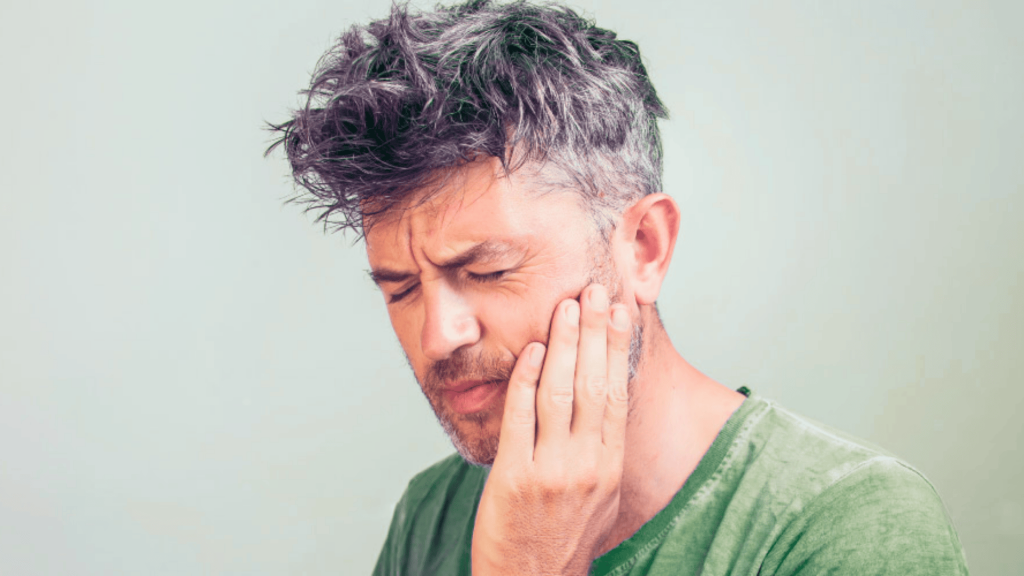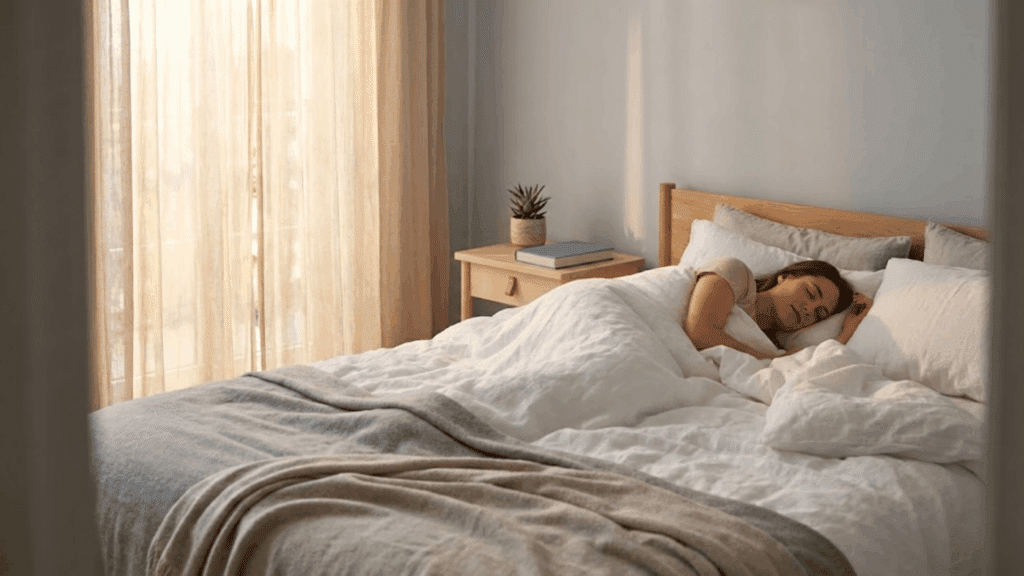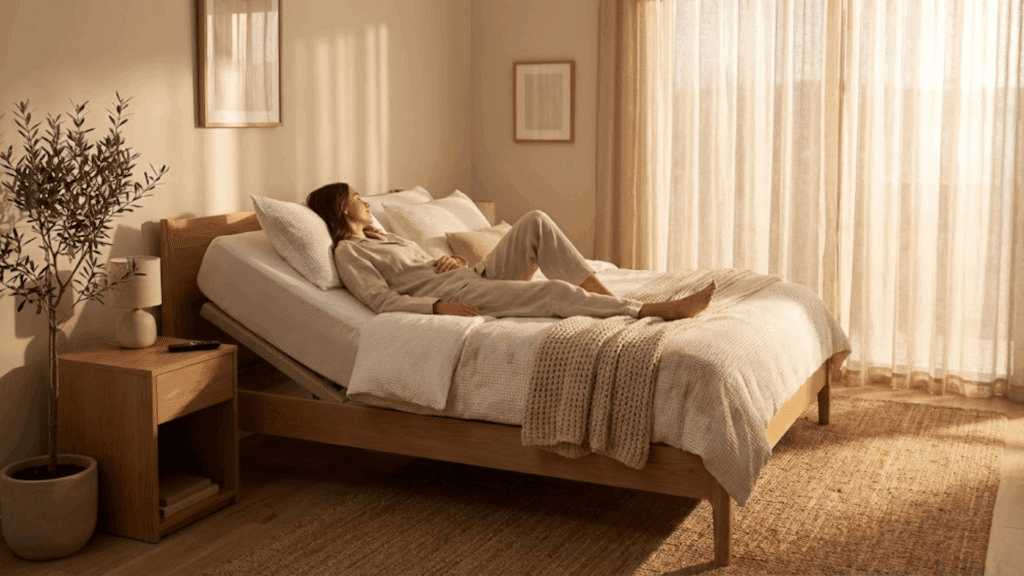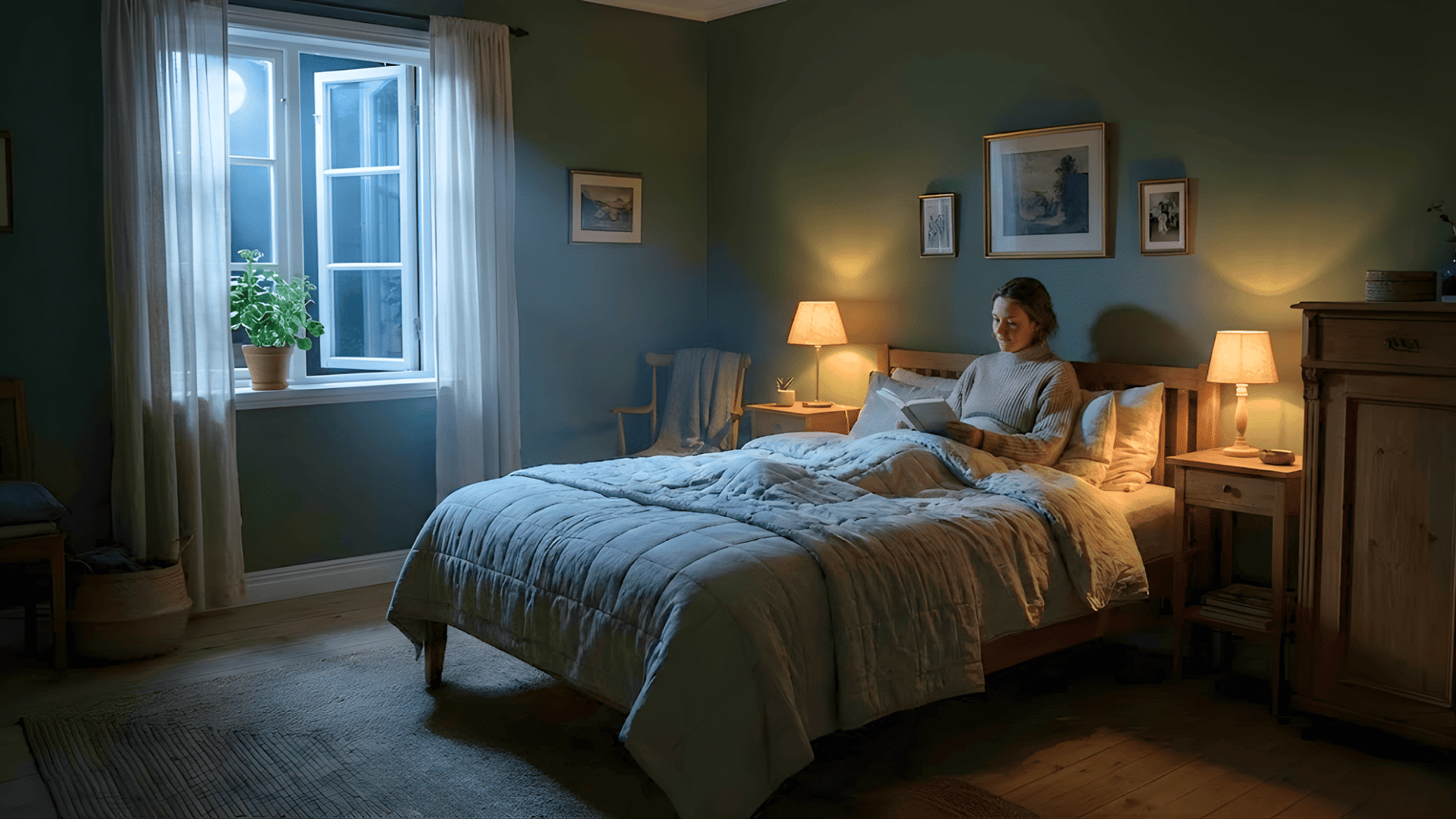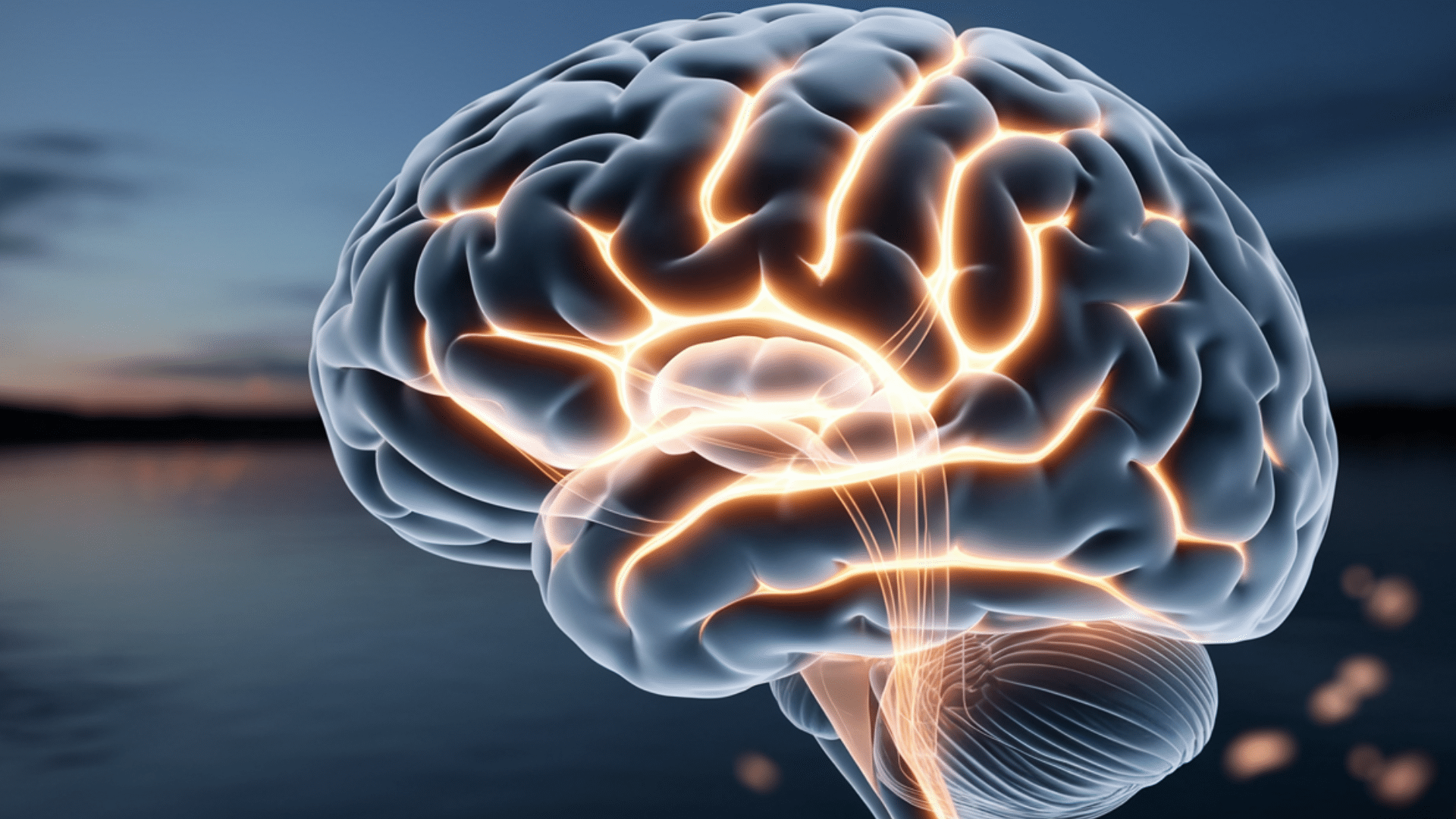Have you ever woken up with an achy jaw that makes it hard to start your day? Sometimes it’s just one side, other times it’s both, and it can be confusing when you don’t know what’s causing it.
You might be wondering, Why does my jaw hurt when I wake up? It’s a common issue, and the reasons behind it might be simpler than you think.
Today, I’ll walk you through the most likely causes of morning jaw pain. You’ll learn what it might mean when only one side hurts and what you can do about it.
The goal is to help you understand what’s going on and how to find relief.
Why Does My Jaw Hurt when I Wake Up?
If you’ve ever wondered why your jaw aches in the morning, the most common cause of jaw pain in the morning is unconscious teeth grinding or clenching while you sleep. This condition is known as sleep bruxism, and it can strain the muscles and joints around your jaw.
Other causes may include TMJ disorders, poorsleep posture, or even sinus pressure. Sometimes, it’s just one factor. Other times, a few issues may combine to cause discomfort. Let’s break down the most likely reasons.
1. Grinding or Clenching Your Teeth at Night
- Often happens without you knowing
- Leads to jaw tightness, soreness, and worn teeth
- Triggered by stress, anxiety, or even sleep apnea
- Commonly causes pain that’s worse in the morning and eases during the day
If you’re waking up with jaw pain and tension in your cheeks or temples, sleep bruxism is likely the culprit.
2. TMJ Disorder (Temporomandibular Joint Dysfunction)
- Affects the hinge joint that connects your jaw to your skull
- Can cause pain, clicking, or difficulty opening your mouth
- Pain may show up on one side or both, depending on the joint affected
Many people with TMJ issues also grind their teeth at night, making symptoms worse by morning.
3. Waking Up with a Sore Jaw on One Side: Check Your Sleep Position
If you sleep with your head turned or resting heavily on one side, you may be placing direct pressure on your jaw joint and muscles. That can lead to soreness or stiffness, especially if it’s always the same side.
Sleeping on your stomach or curling your hand under your face can make things worse.
4. Stress and Anxiety
Tense days often lead to tense nights. Even if you don’t realize it, stress can cause you to clench your jaw while you sleep. This can overwork the muscles and joints, leading to morning pain.
Chronic stress may also increase your risk for bruxism and TMJ flare-ups.
5. Dental or Bite Issues
Misaligned teeth or missing molars can affect how your jaw rests and moves. This may lead to overcompensation on one side, causing one-sided pain.
Impacted wisdom teeth or gum infections can also radiate pain into the jaw. If you’ve had recent dental work or changes to your bite, that might be the root of your discomfort.
6. Sinus Pressure or Congestion
When your sinuses are inflamed, the pressure can push against the upper jaw. This often happens with allergies, colds, or sinus infections.
Morning jaw pain from sinus pressure is more likely if it’s paired with stuffiness, headaches, or facial tenderness.
7. Arthritis or Joint Inflammation
Jaw pain in the morning may be due to joint inflammation from arthritis. Conditions like osteoarthritis or rheumatoid arthritis can affect the TMJ and cause:
- Morning stiffness
- Deep, aching pain
- Limited jaw movement
How to Get Relief from Morning Jaw Pain
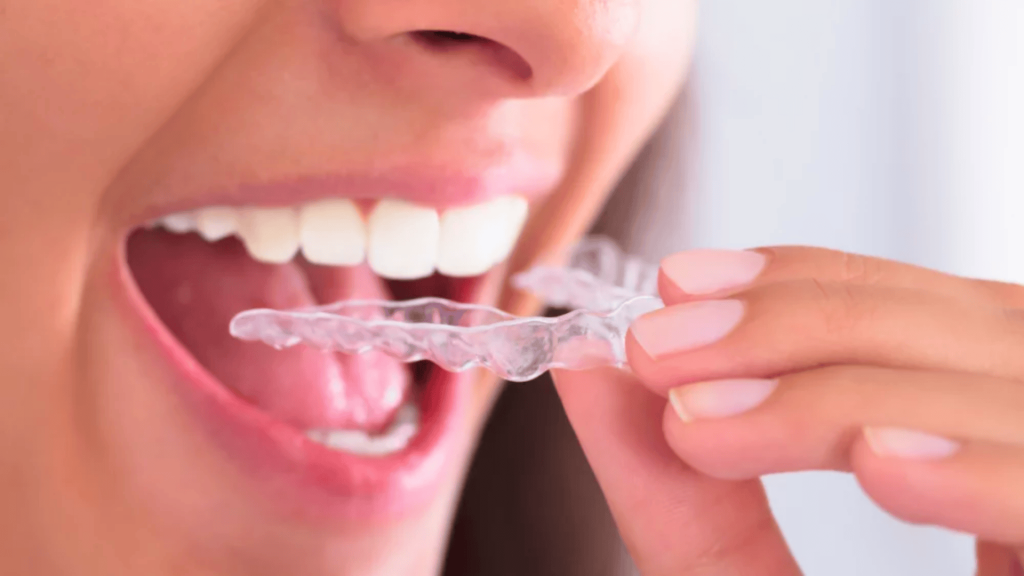
You don’t have to live with that sore, stiff feeling every morning. With a few small changes, you can ease the strain on your jaw and start your day more comfortably.
Below is a quick breakdown outlining effective ways to relieve jaw pain when you wake up:
| Relief Method | What It Does | How to Do It |
|---|---|---|
| Wear a Night Guard | Protects your teeth and jaw from grinding | Use an over-the-counter guard or get a custom one fitted by your dentist |
| Manage Stress | Reduces nighttime clenching and tension | Try deep breathing, gentle stretching, or journaling before bed |
| Adjust Sleep Position | Minimizes pressure on the jaw during sleep | Sleep on your back with a supportive pillow; avoid side/stomach sleeping |
| Use Warm Compresses | Relaxes jaw muscles and relieves tension | Apply a warm cloth or heating pad to the jaw; try a light massage with your fingers |
| Avoid Triggers | Prevents habits that worsen clenching or irritation | Limit caffeine, alcohol, and chewing gum, especially before bedtime |
Even small adjustments, like using a night guard or switching up your pillow, can bring noticeable relief. Try a few of these techniques consistently, and monitor which ones work best for your situation.
When to See a Dentist or Doctor
It’s time to see a professional if:
- The pain lasts more than a few days
- Your jaw clicks, locks, or has limited movement
- You notice tooth damage, headaches, or earaches
- You’re waking up with a sore jaw on one side consistently
A dentist or TMJ specialist can help identify the cause and recommend treatment, whether it’s a night guard, physical therapy, or further testing.
How to Prevent Jaw Pain While You Sleep
Simple nightly habits can make a big difference in reducing morning jaw pain. Here are a few ways to protect your jaw while you sleep:
- Stick to a consistent bedtime routine: Going to bed and waking up at the same time each day helps reduce nighttime tension and grinding.
- Create a calm, screen-free wind-down period: Avoid phones, laptops, and stimulating content at least 30 minutes before bed to ease your nervous system.
- Practice stress-relief techniques during the day: Manage anxiety with activities like walking, journaling, or deep breathing so it doesn’t spill into your sleep.
- Use a supportive pillow and sleep on your back: This keeps your jaw in a relaxed position and reduces pressure on one side.
- Avoid chewing gum or hard foods before bed: Give your jaw muscles a break in the evening to reduce overnight strain.
- Stay hydrated and limit caffeine and alcohol intake: Dehydration and stimulants can increase the likelihood of clenching or grinding.
- See your dentist regularly for checkups: Early signs of bruxism or TMJ issues are easier to manage when caught early.
By adding even a couple of these habits to your routine, you can ease strain on your jaw and wake up feeling more comfortable.
Final Thoughts
If you’ve been thinking, Why does my jaw hurt when I wake up, I hope this helped clear things up.
Morning jaw pain can be uncomfortable, but it’s often linked to small habits that are easy to change once you know what to look for.
From clenching your teeth to how you sleep, the causes vary, but now you’ve got practical ways to handle them.
Just start with one or two tips and see how your mornings feel. And if it keeps happening, talking to a dentist or doctor is a smart next step.
Want more tips like this? Take a look around the blog; I’ve got plenty of helpful blogs you can check out anytime.


